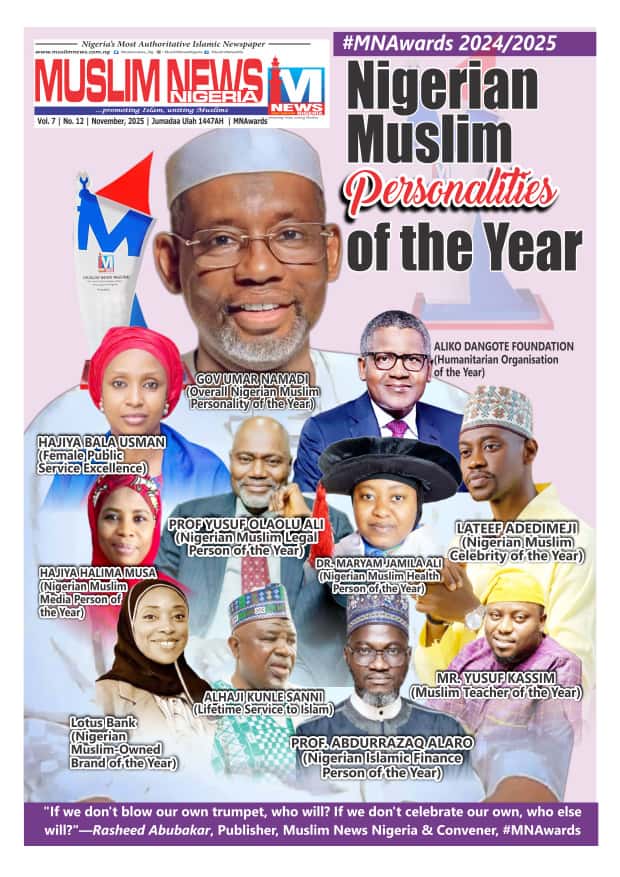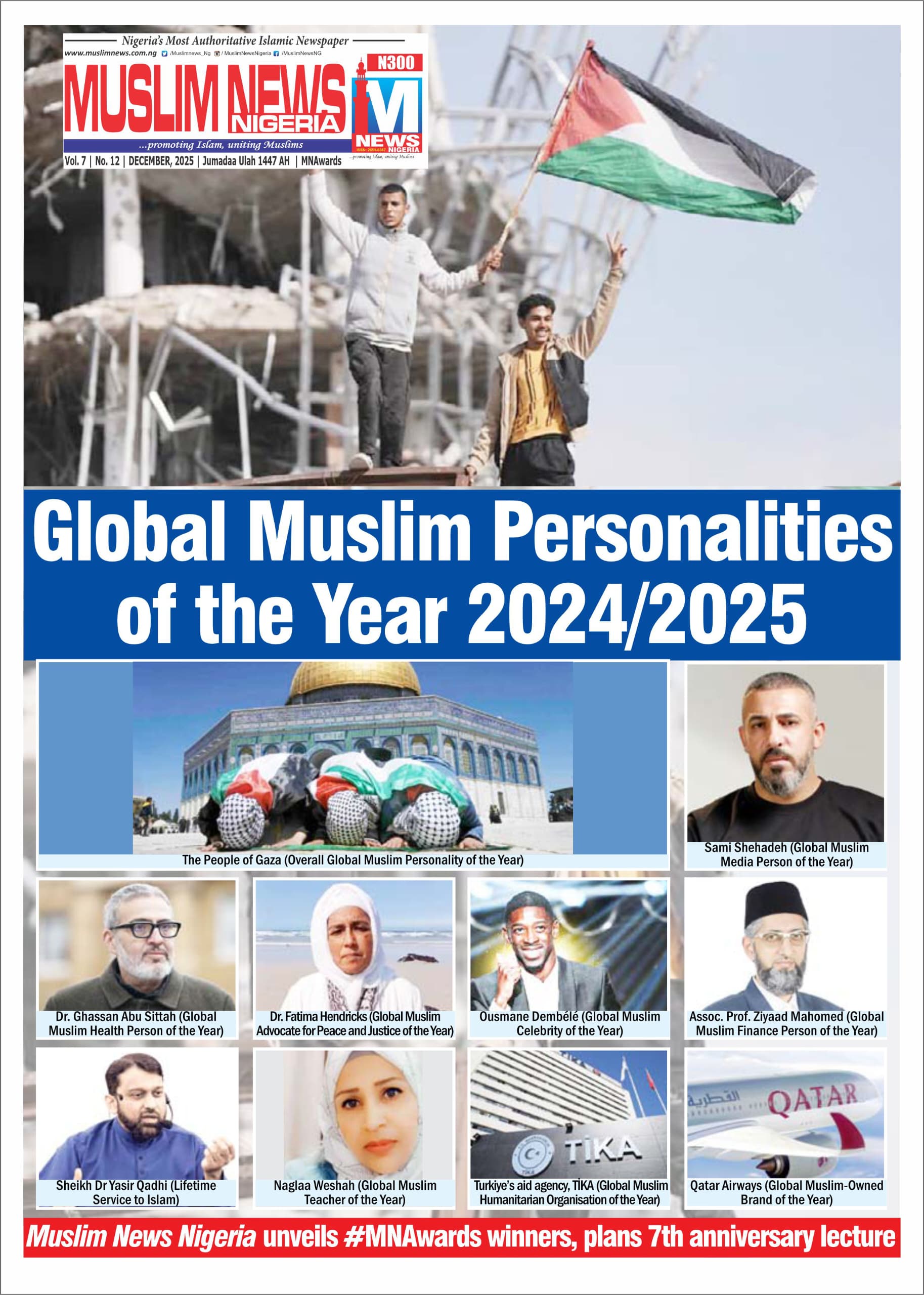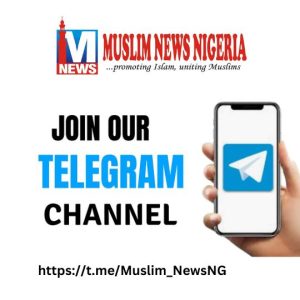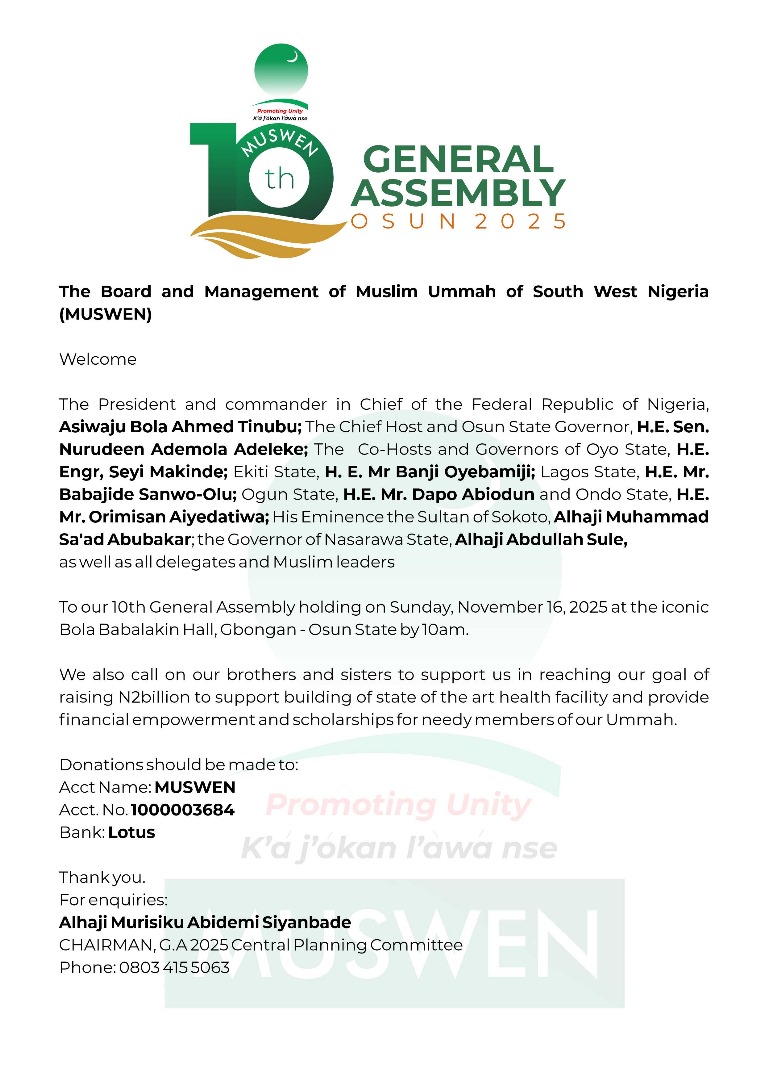Over the past few weeks, a video has been circulating on social media platforms in which Sheikh Muhammed Habibullah Adam El-Ilory (OON), the Mudirul Markaz Agege, queried the establishment of an Islamic market in Iwo, Nigeria. In his critique, he asked the question: Did Prophet Muhammad (peace be upon him) create a market?
For me, this question is aimed at scholars, analysts, historians and students of knowledge to provide historical facts and religious context around the need for an Islamic market in a multi-religious society. My humble suggestion to Islamic scholars in Southwest Nigeria is that they should look at Mudirul Markaz Agege as an agenda-setter who wants to make Muslims think. Nothing more! All we as Muslims need to do is provide fact-based answers, observing all decorum. In the current case, it is crucial to put one’s question in the counsel of Allah: “So ask those who know if you do not know” (Quran, 16:43).
Undoubtedly, Prophet Muhammad (PBUH) established an Islamic market and also patronised existing pre-Islamic markets. All Muslim historians agree that upon migrating to Medina in 622 CE, he found that the city’s markets were largely dominated by non-Muslim traders, whose actions were rife with unethical practices such as monopolization and exploitation.
One of the most important markets in Medina at the time was the market of the Jewish tribe Banu Qaynuqa, which was central to local trade. However, it was fraught with unfair practices such as hoarding and price manipulation (Rahman, 1974). This market and several other pre-Islamic markets did not correspond to the ethical values that Islam promotes.
In response, the Prophet (peace be upon him) established a new marketplace for the Muslim community near the mosque to highlight the moral and ethical foundations of trade. This new market was based on Islamic principles and was free from the exploitative practices of other markets. It is important to emphasize that, in addition to being a prophet of Arab descent and the last prophet of Allah in the line of messengers, he practically demonstrated Islamic economics, Al-Iqtisaad al-Islami (Islamic Economics), to humanity. Previously, people viewed economic transactions as purely mundane activities. The establishment of a new marketplace dismantled the monopolies held by some traders, fundamentally eliminated unfair practices, and reduced the economic dominance of Medina’s Jewish community. This strategic move led to significant economic empowerment and socio-political changes in the region. This change in the political economy, coupled with the religious and social reforms instituted by Prophet Muhammad (Peace be upon him), was a key factor in the deep-rooted hostility that Jews harboured toward the Prophet (Peace be upon him), Muslims, and Islam, both during his time and continuing to the present day.
Without mincing words, the name of the famous market that Prophet Muhammad (PBUH) founded was Suq al-Manakhah in Medina (Muhamad et al., 2022). He established clear rules and regulations for this market, including prohibiting hoarding and unfair pricing, and promoted free competition without the monopolistic tendencies prevalent in other markets. This initiative ensured that all buyers, sellers, and other participants, regardless of their religion, could trade in a fair and equal environment (Al-Asqalani, 1986). This is exactly the physiognomy of the Iwo Islamic Market!
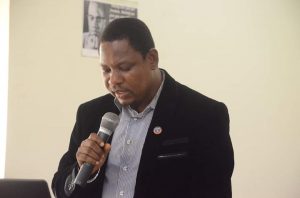
At the Islamic market in Medina, the Prophet declared: “He who brings goods to the market is blessed, but he who withholds them is cursed” (Sahih Muslim, 10:3661). The establishment of Islamic ethical markets was not an arbitrary decision but one that reflected the teachings of the Qur’an. For instance, the Qur’an states: “And give full measure when you measure, and weigh with an even balance. That is the best [way] and best in result” (Qur’an, 17:35).
This divine command emphasises the importance of fairness in trading and the need for honest measurements and transactions. The Prophet Muhammad (peace be upon him) personally inspected the merchants’ scales and reminded them of their duty to uphold justice. The creation of a marketplace based on Islamic values was therefore a practical step to ensure that these Quranic commandments were adhered to (Chapra, 1992). Another verse that directly relates to commerce is: “O you who have believed, do not consume one another’s wealth unjustly or send it [in bribery] to the rulers so that [they might aid] you [to] consume a portion of the wealth of the people in sin, while you know [it is unlawful]” (Qur’an, 2:188).
In the detailed historical account of Rahman (1974), it was documented that four major markets were trading centres during the time of the Prophet (peace be upon him). Firstly, Suq al-Manakhah (Medina) was the market founded by Prophet Muhammad (PBUH) in Medina. It was based on the ethical guidelines of Islamic principles and emphasised honesty, fairness, and justice in trade. Secondly, Suq Ukaz (Arabia) was a pre-Islamic market and continued to exist in the early Islamic period. Located between Taif and Mecca, it was one of the Arabian Peninsula’s largest markets, known not only for trade but also for poetry competitions, art, and intellectual debates. Prophet Muhammad (PBUH) frequently visited Suq Ukaz and used the opportunity to preach Islam while promoting ethical commercial and economic practices of Islam. Third, Suq Majanna, another famous pre-Islamic market, serves as an important trading centre near Mecca. Although it was not founded by the Prophet, it became an important hub for the early Muslim community where they could interact with various traders and spread Islamic ethics in trade. Finally, Suq Dhul-Majaz, near Mount Arafat, is a seasonal market where traders from different parts of Arabia meet to conduct business. Prophet Muhammad (PBUH) visited this market and preached there to promote Islamic values in trade. Umar Chapra (1992) also confirmed the above facts.
While Prophet Muhammad (PBUH) did not explicitly advocate the creation of a market exclusively for Muslims, he emphasised the need for markets to function following Islamic values. A religious market in the Islamic context refers to a market governed by Shari’ah ethical principles that ensure justice, fairness, and transparency. For example, the Prophet said: “The merchants will rise on the Day of Resurrection as evildoers, except those who fear Allah, are honest, and tell the truth” (Tirmidhi, 1130). This hadith highlights the responsibility of traders to conduct their business ethically and links trade to moral responsibility in the afterlife. Ethical business practices in Islam are legendary and inspiring.
One of the fundamental principles of Islamic markets is the prohibition of fraud, deception, and counterfeiting. To prevent these evils and promote fairness and mutual benefit in the market through ethical trading. Prophet Muhammad (PBUH) established these values in the market of Medina by ensuring that transactions were free from exploitation (Chapra, 1992). Furthermore, in Islamic governance, the concept of hisbah (market regulation) emerged to monitor markets and ensure compliance with ethical principles, a practice that began with the Prophet himself (Al-Asqalani, 1986).
In conclusion, Prophet Muhammad (PBUH) played a crucial role in creating an Islamic market in Medina that was governed by Islamic ethical principles. This market served as a space for Muslims and Non-Muslims to learn the practicalities of fair, transparent and equitable business practices that benefit both Muslims and non-Muslims. His Qur’an- and Sunnah-based teachings emphasized the moral responsibility of traders and the need to integrate spiritual values into economic activities. The Prophet’s establishment of the Medina market and his supervision of other markets in the region demonstrated that trade, when conducted ethically, can be a form of worship that pleases Allah and benefits society. The model he laid out remains a powerful example of creating ethical markets that balance profit with social justice, accountability, and spiritual integrity. Therefore, the Islamic Iwo market has theological, sociological, historical, and economic justifications from the Quran and Sunnah.
Three critical threats to novel economic models that should concern Muslims in the Southwest are scalability, reproducibility, and sustainability. In the context of the Islamic market in Iwo. Scalability means the ability of the market to grow and expand without compromising its core values and principles. Reproducibility refers to the ability of promoters to faithfully reproduce Islamic markets as models in different parts of Nigeria. while maintaining its core values and principles. Sustainability refers to the ability of the Islamic market to exist for an extended time without depleting resources, whether they are financial, social, or spiritual. We pray to Allah for scalability, reproducibility, and sustainability of the Iwo Islamic market: Our Lord, pour upon us patience and plant firmly our feet and give us victory over the disbelieving people.” (Surah Al-Baqarah, 2:250).
Dr. Lukman Raimi, PhD, LL.M. MNIM, is an entrepreneurship educator, legal researcher, and good governance advocate.
References:
1. Al-Asqalani, I. H. (1986). Fath al-Bari. Dar al-Ma’rifah.
2. Chapra, M. U. (1992). Islamic Economics: Theoretical and Practical Perspectives. Islamic Foundation. DOI: 10.2307/4226199
3. Qur’an, 2:188, 3:130, 17:35.
4. Rahman, F. (1974). Islam and Modernity: Transformation of an Intellectual Tradition. University of Chicago Press. DOI: 10.7208/Chicago/9780226702865.001.0001
5. Sahih Muslim, Book 10, Hadith 3661.
6. Muhamad, MD, Abdullah, SFS, Yaakub, E., & Shahruddin, MS (2022). The Regulations Of Authority In Localization Of Commerce Activities In Medieval Muslim Society. al-Qanatir: International Journal of Islamic Studies , 26 (2), 121-126.


